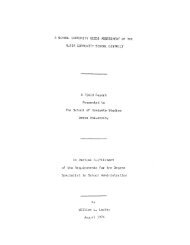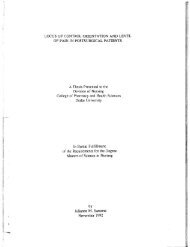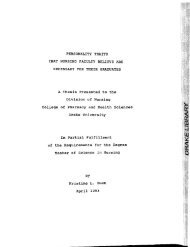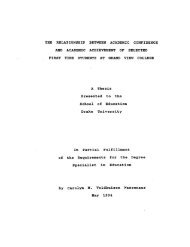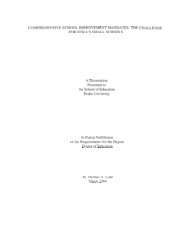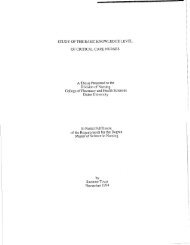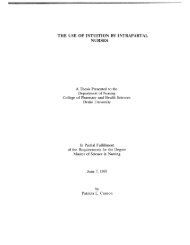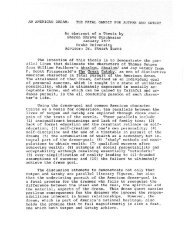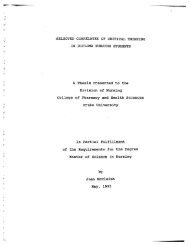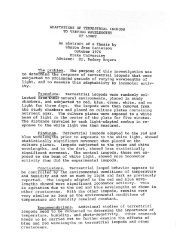LEADERSHIP CHARACTERISTICS OF ... - Drake University
LEADERSHIP CHARACTERISTICS OF ... - Drake University
LEADERSHIP CHARACTERISTICS OF ... - Drake University
Create successful ePaper yourself
Turn your PDF publications into a flip-book with our unique Google optimized e-Paper software.
leadership style correlates with subordinate satisfaction or organizational<br />
success (Avolio & Bass, 1999; Bass, 1999; Lowe et at., 1996)<br />
Leadership and Values<br />
In the face of healthcare changes and increased demands, the role<br />
of values-based leadership emerges as a critical factor. Pendleton and<br />
King (2002) reviewed a number of studies related to leadership and values<br />
and determined that<br />
Values are deeply held views that act as guiding principles for<br />
individuals and organizations. When they are declared and followed<br />
they are the basis of trust. When they are left unstated they are<br />
inferred from observable behavior. When they are stated and not<br />
followed the trust is broken (p. 1352).<br />
According to Maslow (1 954), as individuals move from one level of<br />
their hierarchy to the next, their attitudes, perceptions, and values change<br />
in accordance with their new needs. Thus, values are inherently positive<br />
constructs and are considered to function as a base from which attitudes<br />
and behaviors flow (McCarty & Shrum, 2000). Rokeach defines a value as<br />
"an enduring belief that a specific mode of conduct or end-state of<br />
existence is personally or socially preferable to an opposite or converse<br />
mode of conduct or end-state of existence" (Rokeach, 1973, p. 5).<br />
Several studies over the past decade have indicated the power of<br />
organizations' and individuals' values in performance improving. Collins<br />
38



